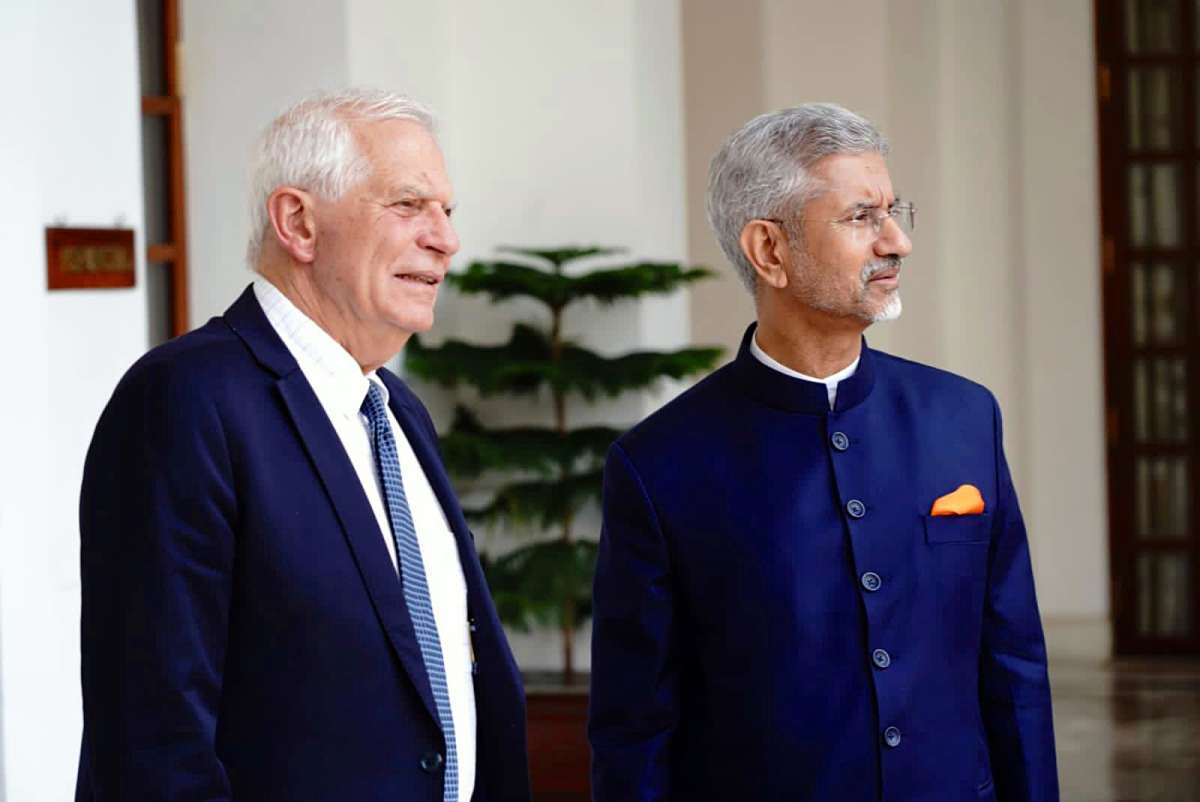This will be mutually beneficial and a long-term partnership with India in coordination with the G7 countries, the statement read…reports Asian Lite News
India remains an indispensable strategic partner for the European Union, Foreign Policy chief Josep Borrell said on Wednesday and added that the country will become the third largest economy in the coming years, according to a statement released by EU.
While addressing the India-Europe Business and Sustainability Conclave, Borrell said, “We see that the multilateral system is in crisis. Power politics and distrust among main actors are putting pressure on the United Nations system, on the G20, on the World Trade Organisation (WTO) and beyond. Let’s hope that today, we could try to solve some things at the G20 [Foreign Ministers’] meeting.” “We are facing geopolitical challenges, and India – believe me – remains an indispensable strategic partner for the European Union. You are – you have become – the fifth economy in the world, the most populated country and in not many years you will be the third economy in the world,” he added.
In the Conclave, the EU’s top diplomat laid out three points and they are energy, technology and economics.
Borrell said that currently, the whole world is facing an energy crisis. And the trend will continue because the world needs much more energy. The rich people can decrease consumption, but two-thirds of mankind need to consume much more, according to the statement.
So, the solution for climate change will not come by from saving energy on the global stage because there are too many poor people that have never seen a [light bulb].
EU was dependent on 40 per cent of its gas imports from Russia, and for some Member States by 100 per cent. “We have learned that the supplier can have strategic intentions and that the nature of the regime of the supplier matters. We have had to take important steps in order to free ourselves from these dependencies – and we succeeded. Germany has cut its dependency on Russian fossil fuels to zero, in a record time,” Borrell said.
“And I think that in this geopolitical setting, [there] is an even greater potential for increasing our energy cooperation – EU-India cooperation – on solar [energy], green hydrogen, [and] offshore green energy. Intensifying outreach towards the private sector in both India and the European Union will be key,” he added.
EU is determined to make the green energy transition inclusive and socially just. The transition has to be just or it will not happen. If it is not just, [there] will be so much political resistance – both at home and abroad – that it will fail. So, let’s provide cheaper, affordable, alternative ways of producing energy.
This will be mutually beneficial and a long-term partnership with India in coordination with the G7 countries, the statement read.
“I insist: promoting cheaper, renewable energy is more important than ever to accelerate the short-term energy transition. Renewables are growing fast but look: carbon energy is still 80 per cent of the world’s energy supply. It is still 80 per cent, the proportion has not decreased. Renewables grow but carbon is still 80 per cent. A lot has to be done.
And Russia’s war against Ukraine has accelerated our energy transition, especially in Europe and the United States. The rest of the world will have to follow,” he added.
Talking about technology, EU’s top diplomat said that the United States is leading the technological race but there are four non-US companies which are rising and becoming maybe the masters of the technological future.
One [is] from Taiwan (Taiwan Semiconductor Manufacturing Company Limited, TSMC). Another [one is] from the Netherlands (SML). Another [one is] from China (BYD) and another [one] is from China (CATL).
GAFA (Google, Apple, Facebook, Amazon) are the masters of the chips’ production and the more precise the chips are, the greater the concentration of production. Taiwan and South Korea will dominate the industry of semiconductors. They are critical for everything. We – in the European Union – import 85 per cent of all semiconductors that we use.
“Today, we are more dependent on China for critical [raw] materials than we were dependent on Russia on fossil energy. And for the green transition, we will need lithium, cobalt, rare earth for batteries, [or] magnets for turbines. These are physically located in a very limited number of countries. Cobalt, lithium, copper [are] concentrated in Congo, Australia, Chile and China,” Borrell said.
“So, we have an interest in deepening our collaboration with India in a number of ongoing digital initiatives to deliver tangible results,” he added.
The recovery from COVID-19 has been very unequal. This debt crisis, this inflation, this food insecurity, this climate change, this international system that many see as outdated – it is certainly outdated – paralysed and inequal, require us to be more proactive and more attentive, he also stated. (ANI)








